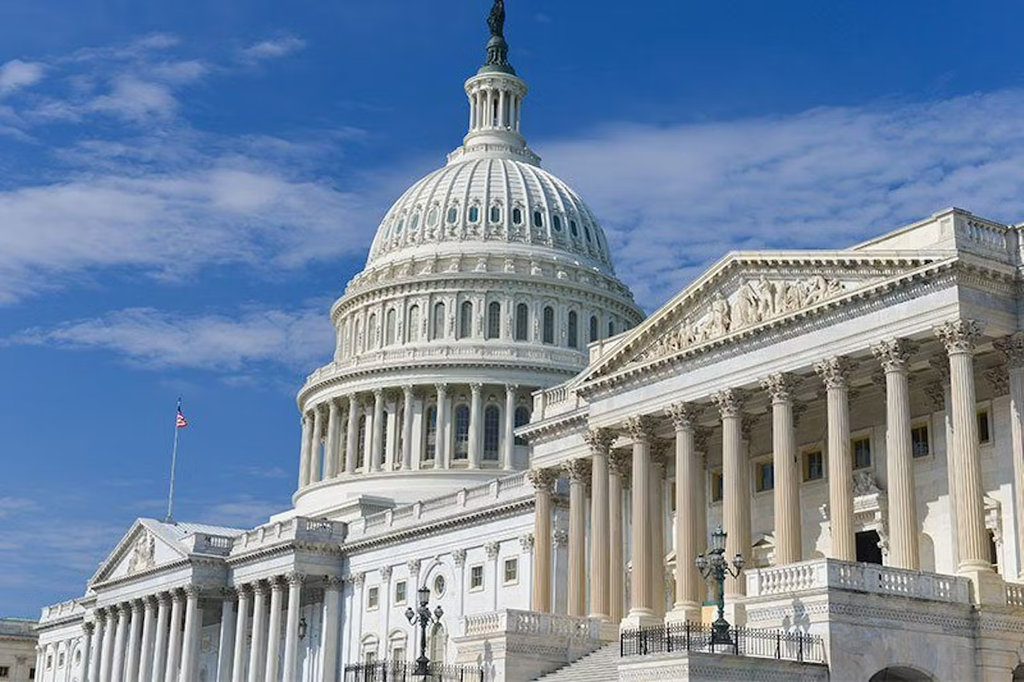
Federal legislators who control FDA funding are demanding stricter enforcement against vaping products that have not been granted marketing authorization by the agency. If the FDA doesn’t deliver on the congressional demands, legislators have proposed penalties for the agency.
In the last week, both the Democratic-led Senate and the Republican-led House Appropriations committees passed Fiscal Year 2025 spending bills that would punish the FDA if the agency doesn't pursue tougher enforcement policies, especially against flavored vape products and popular disposable vapes.
Bipartisan hate for vapes that consumers like
The congressional attack on disposables and other independent vaping products is bipartisan, with Democratic Senate members adopting the language of tobacco control activists in their legislation, and Republicans in the House copy/pasting wording found in tobacco industry-sponsored PMTA registry bills that were introduced in many state legislatures this year.
The marriage of tobacco industry interests and anti-tobacco zealotry isn’t especially unusual. After all, the 2009 Tobacco Control Act itself—which gave the FDA regulatory authority over tobacco and created the FDA Center for Tobacco Products (CTP)—was written and passed with the participation, cooperation and support of both the Campaign for Tobacco-Free Kids and Marlboro manufacturer Philip Morris (now called Altria Group).
So far, every vaping product included on the FDA’s tiny list of authorized products comes from companies owned by tobacco conglomerates Altria Group, Japan Tobacco, and R.J. Reynolds. That certainly won’t change if congressional appropriators from both parties have their way.
Democrats: ban the vapes, save the kids
The Democratic-controlled Senate Appropriations Committee, chaired by longtime vaping opponent Patty Murray (D-WA), has produced an appropriations bill that threatens to withhold some FDA funding next year unless the agency updates its 2020 enforcement priority guidance to include disposable vapes as a prime enforcement target, and issues a proposed rule requiring foreign manufacturers to register with the CTP.
Senate appropriators also want regular import alerts “to help address the importation of tobacco products that appear to be in violation of applicable laws,” and demand the agency submit quarterly reports detailing the number of pending premarket tobacco applications (PMTAs) and when they were received.
If the FDA doesn’t meet the demands laid out in the bill, the agency would be denied about $25 million in funding budgeted for salaries and expenses.
The Senate bill also includes an additional $2 million for the recently announced multi-agency task force led by the FDA and Justice Department, designed to enforce FDA restrictions on vaping products. The report accompanying the bill urges the FDA to deny PMTAs “for all products, especially flavored products, that have increased or are likely to increase initiation by youth or non-tobacco users.”
The bill that passed the committee is not the final version the whole Senate will eventually vote on. The FDA enforcement demands could be amended or stripped from the bill during later budget negotiations, or when the Senate and House bills are reconciled.
Republicans: ban the vapes, save the tobacco industry
The FDA budget bill passed by the House Appropriations Committee, which is controlled by Republicans and chaired by Tom Cole (R-OK), checks most of the boxes the tobacco industry likely sought when lobbying the committee. The result is much the same as the Senate committee's bill, although the carrots and sticks used to influence the FDA are different.
The House committee’s bill would prevent the FDA from carrying out its stated plans to ban menthol cigarettes and flavored cigars, or limit the allowable level of nicotine in cigarettes, until the agency updates the 2020 enforcement guidance, requires foreign manufacturers to register with the CTP, issues import alerts, and delivers a quarterly report to both appropriations committees “on the progress the Center for Tobacco Products is making in removing all non-compliant nicotine products from the market.”
The House also wants the agency to create a list of products authorized for U.S. sale (or subject to safe harbor because of court orders or other circumstances), and “Publicly disclose the authorized list to manufacturers, wholesalers, and retailers, with instructions to cease the distribution, sale, and/or marketing of any deemed product not on the list.”
That wording could have been lifted directly from any number of PMTA registry bills written by Altria and lobbied for in state legislatures this year.
Both bills would protect the legacy tobacco industry, although no member from either committee would probably admit it. Both bills would make it harder for people who currently smoke to find attractive and effective nicotine alternatives. Neither bill would stop youth vaping.
